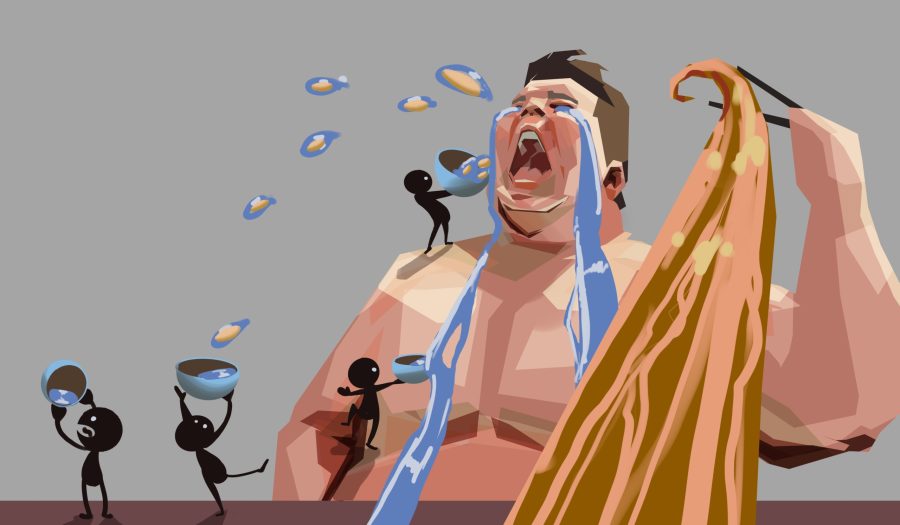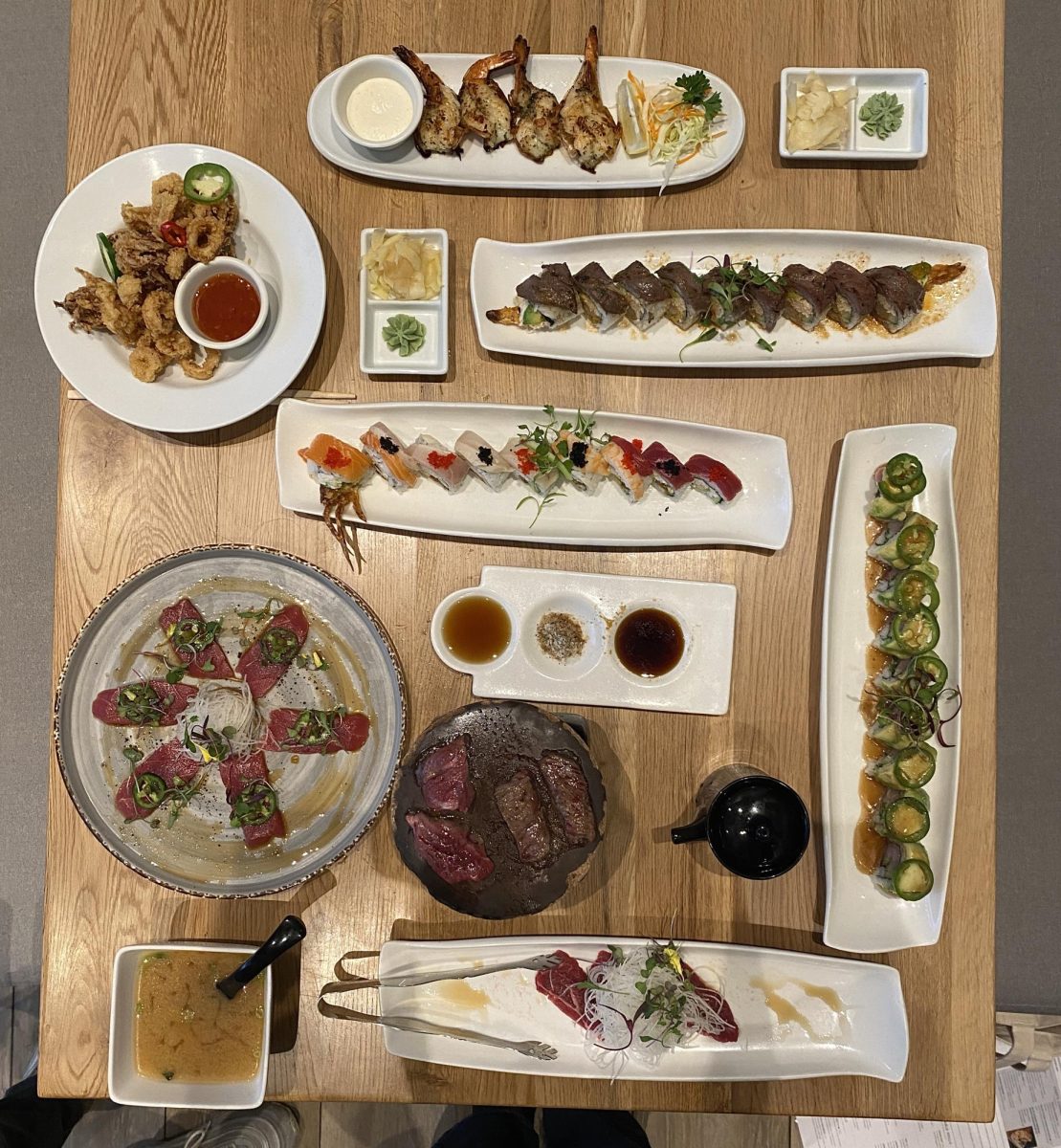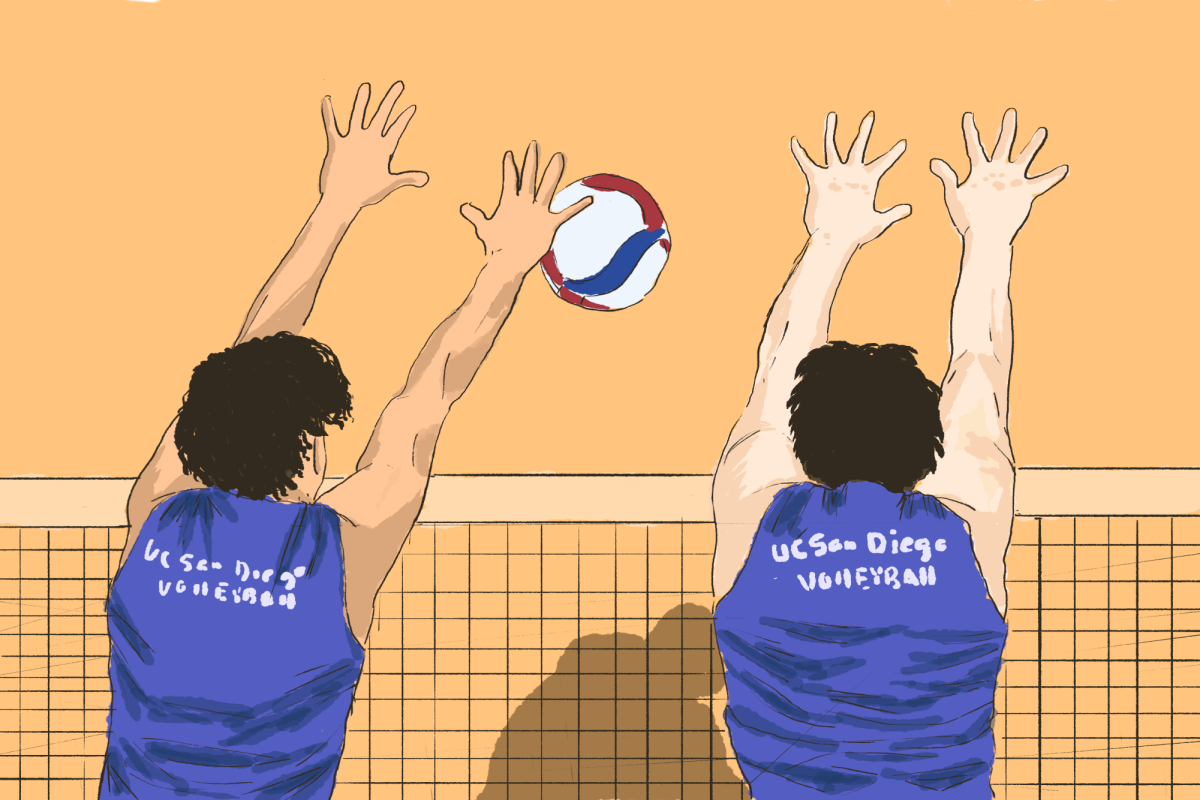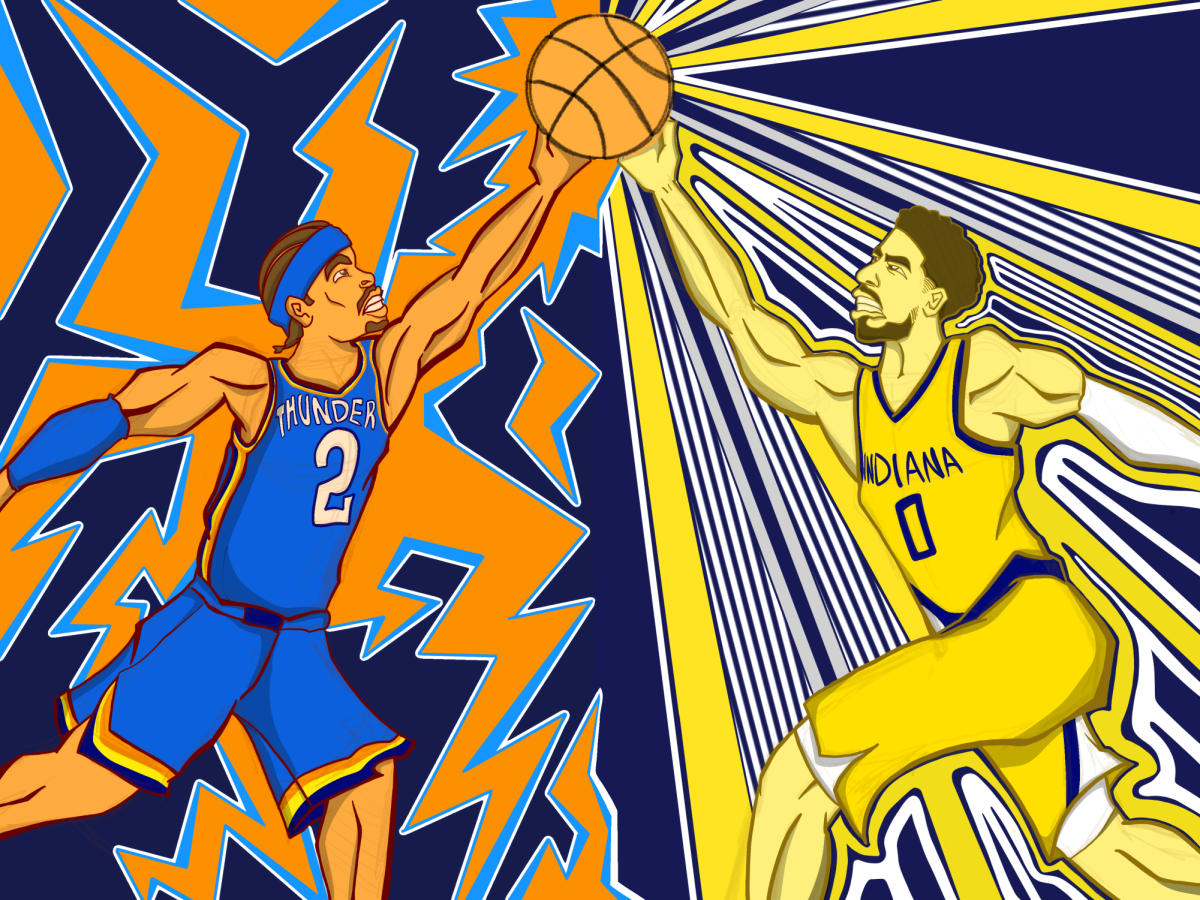The Scoop on YouTube’s Mukbang culture now
Photo by Nicholas Regli/ UCSD Guardian
Nov 7, 2022
The YouTuber has already hit Record when they reach for the first crab leg seasoned in Hot Cheeto dust and slather it with nacho cheese. They either choose to talk to their camera in a conversational way or say nothing and let the crab leg speak for itself. Some people call this eating process satisfying, with some attributing the reason behind watching such videos to ASMR or a pleasurable “brain tingle.” Others call this recorded way of eating gratuitous and unnecessary — a pathway to disordered eating or unhealthy habits.
The video, nonetheless, will be posted with a red and yellow palette (colors known to evoke hunger) and jubilant or tearful expressions galore on YouTube.
It will be pitted against dozens of other top-name mukbangers, as well as health and social norms, no longer just a way for audience members to ward off loneliness or occupy their time with cheap thrills. The video, in other words, is not just mealtime at face value but a potential ticket to accessing who the “performer” might be, whether they declare it or not.
Mukbangs — a combination of “eating” or “muk” in “muk-ja” (let’s eat) and “broadcast” or “bang” in “bang-song”(broadcast room) — began in Korea by those keen on utilizing live video formatting around dinnertime to eat large amounts of food with others and engage in camaraderie. The live formatting started on the platform AfreecaTV and Twitch, with commenters being able to direct the person eating, or the “performer,” to move a certain way or eat one particular food.
This is notably prominent in Korea, where many youths began broadcasting their meals and responding to live chats due to the loneliness of eating by themselves when eating can easily be a shared experience. Yet, it was not usually a time to be vulnerable about their personal lives as much as it was a time to display the food and how it was being consumed — or how much of it.
Mukbangs are still unfamiliar to some on YouTube, with these videos from American Youtubers emerging just a few years ago and knowledge of it in the U.S. growing from 2015 due to a Fine Brothers Entertainment reaction video on Korean mukbangs. Even today, many YouTubers who invest in the mukbang scene pronounce the word “mook-bang,” a humorous indication of how something so integral such as the term itself can easily lose its roots as the concept becomes more widely known.
YouTubers like Nikocado Avocado — who calls his fans “little sloths” — or Trisha Paytas are just a few of the many mukbangers on YouTube who engage in storytelling or sharing personal stories to build a more personal dynamic with their audience; they are not just consumers of food but a friend to sit with. If a mukbanger is especially popular, they can use this occupation as a reliable source of income with added stability from ads and sponsorships.
The literature behind why individuals watch mukbangs is not plentiful, but according to an article from the International Journal of Mental Health and Addiction, authors Kagan Kircaburun et al. have detailed that it can fulfill psychological needs such as loneliness as well as vicarious eating pleasure.
But recently, mukbangs have manifested on YouTube as a more notorious, harmful means: one of addiction and insatiable appetites. Indeed, the food that gets the most views is not a Greek salad but rather a realm of calorie-dense meals like instant noodles or other usually accessible fried foods and fast food like Taco Bell or Jollibee’s.
Nicholas Perry — better known as Nikocado Avocado — is a mukbanger known for being an amalgamation of extremes, from his start in veganism to more carnal appetites after college and his recent amassing of a huge following. His presence on YouTube has transitioned into status as a performer and often disregards what he might be experiencing behind the scenes.
On his third YouTube channel, he posted a video last month titled “Celebrating our 700 pound Milestone…. McDonald’s Mukbang,” referring to him and his on-and-off husband’s apparent increase in weight; there was notably an overall nonchalance about the situation. This is not new. In some videos, he engages in physical and verbal altercations with his husband, Orlin Home, while eating large amounts of food. Yet, the behavior continues without loss to his channels, and the repetitive nature of this has resulted in overwhelmingly negative but unsurprised feedback or even tepid disinterest from audience members.
Perry currently has five YouTube channels with views helping his videos gain traction regardless; furthermore, he is on Cameo and Patreon where one can pay $149 for a personalized video of about five minutes and $16 per month for All-Access for more personal content respectively. His Cameo holds an almost 5-star rating with more than seven hundred satisfied reviews.
The way sympathy can manifest when one thinks much pain is self-directed is of murky territory. Food addiction, for one, is undeniably real, with the withdrawal effects as present as drug withdrawal. But many individuals have expressed disgust or even dismay, with some expressing their gratitude for the subtle nudges from these videos to eat in a more healthy manner or feel better about themselves or their own bodies. Further, many YouTube comments state that the “real fans” are the ones expressing their anger or disapproval of his actions, while others encourage his behavior when they praise him.
According to a study in the Health Informatics Journal by Jihye Lee et al., videos that depict overeating garner a larger audience. This also applies to spicy food or food with time limits. As cyclical as it sounds, there is confirmation, too, of the mukbanger giving in to the viewers’ desires. In other words, despite the criticism, there are still viewers helplessly curious or intrigued to watch the videos they may end up critiquing. These views encourage the mukbanger to continue making this content.
Additionally, Kircaburun et al. state that recreationally watching mukbangs is not as pressing as frequently watching mukbangs at a problematic level, which entails watching as a form of escapism from real-life situations. This can be a gateway to internet addiction.
Mukbang videos also carry moral weight to some who scrutinize mukbangers and see their way of eating as an avenue for gauging the type of individual they are. For instance, in early 2019, Veronica Wang, a YouTuber whose content focused particularly on mukbangs, entered a scene of controversy and involvement with a lawyer, after being dubbed a YouTuber unable to take criticism when jabs were made at her in some edited videos. She responded with a copyright strike against the small YouTube account Shookbang and received a barrage of hate and dismay at her actions, only to be a more embraced YouTuber today despite that fall from grace.
Some accounts on YouTube have devoted their editing skills to creating compilation videos making jabs at mukbangers, which sometimes gain so much traction that some find out who the subject of entertainment is through the videos through these small, anonymous creators. The videos exaggerate facial expressions or words and tease that the mukbanger is eating too voraciously or greedily. As flippant as the videos seem in weight, these mukbangers are usually not too well-liked.
Songbyrd ASMR, like Wang, does mukbangs on YouTube and has edited video compilations of herself — often titled “Cringe Compilation” which many individuals praise and defend due to her past controversial comments against communities of color. These critical video compilations of her eating manners draw in hundreds of thousands of viewers who take note of the way she eats and how unappetizing her food seems.
Both of these YouTubers have been open about their lives in their mukbang videos.
Thus, the avenues for vulnerability that mukbangs have opened up for YouTubers to delve into their lives beyond food also have oddly created a sense of disconnect in which the food itself or how a meal is being consumed becomes the individual. In other words, if mukbangs still aren’t curated aesthetically such as adhering to the red-and-yellow-food-theme or the mukbangers are embroiled in personal issues outside of eating videos, they garner negative reception from their audience. They may face critique against themselves, as well as their ability to do mukbangs (such as comments that they eat too loudly or have unappealing food). Moreover, many commenters and viewers support the critique.
Still, as Lee et al. stated, the types of foods and the manner of eating might be a big factor in discerning the impact of mukbangs. Viewership increases when eating is voracious and appetites are large — all the things that also receive negative attention.
Mukbangs on YouTube still serve as a means to bridge the gap between mukbanger and audience members. Many of the videos dive into storytelling, sharing, and more.
Still, this comes with the price of potentially seeing them beyond the food and even attributing certain flaws in how they perform as a mukbanger to their character. This also comes with mindless consumptions out of mild curiosity or intrigue without genuinely caring about the performer.
Art Courtesy of Nicholas Regli
















Candy Crush • May 30, 2023 at 2:48 am
Nice blog..
Andrea • Jan 5, 2023 at 8:49 am
Nice content! Very informative one. https://www.carpetmasteronline.com/
James • Jan 5, 2023 at 8:47 am
Glad to see this very informative article, great share. https://www.barrettfinancial.com/
Slope Unblocked • Dec 7, 2022 at 9:01 pm
Viewership increases when eating is voracious and appetites are large — all the things that also receive negative attention.
Slope Unblocked • Dec 6, 2022 at 10:43 pm
This is notably prominent in Korea, where many youths began broadcasting their meals and responding to live chats due to the loneliness of eating by themselves when eating can easily be a shared experience.
surviv io • Nov 23, 2022 at 11:31 pm
The types of foods and the method in which they are consumed may have a significant role in determining the impact of mukbangs. When eating is voracious and appetites are large, viewership grows — all of which earn negative attention.
Ashley • Nov 9, 2022 at 6:47 am
Do Work At your Home And Make Money From Home .,..
Open This Link …>http://www.richsalaries4u.blogspot.com/